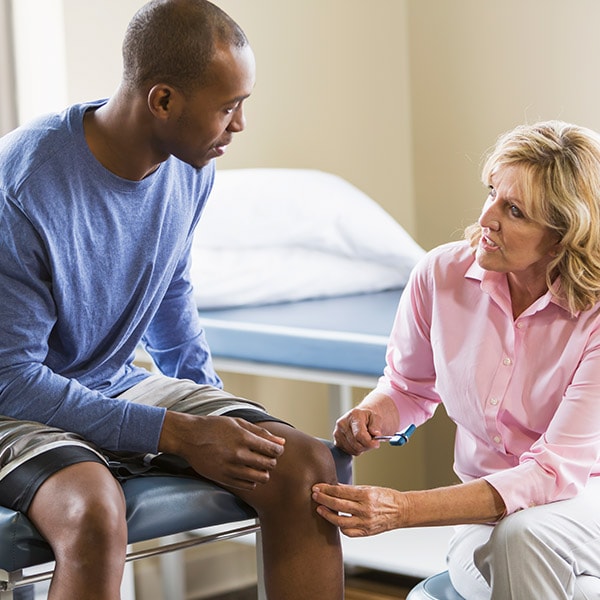Like all surgeries, knee arthroscopy comes with certain risks.
Results
The outcomes for knee arthroscopy vary depending on the problem and the type of procedure that is performed.
Recently, doubts have been raised about the long-term benefits of knee arthroscopy, particularly for degenerative conditions like osteoarthritis and most meniscus tears. It’s still considered highly effective for specific conditions, such as meniscus and ligament repair, however.

Risks
Most arthroscopic knee surgeries are problem-free but about 1 patient in 20 may have complications. Complication rates vary between types of procedure.
The highest rate of complications is seen in posterior cruciate ligament reconstruction (20.1%) and the lowest for meniscectomy (2.8%). Learn about Types of knee arthroscopy.
Most complications can be successfully treated, although sometimes further surgery is needed. The most frequent complications are:
- Infection following knee arthroscopy is extremely low with approximately (1 in 1,000) patients (or 0.1%) developing infection of the joint following surgery. In some cases, infection is limited to the skin and soft tissues and may only require antibiotics for treatment. Infection that extends to the joint is known as “septic arthritis” and will often lead to more surgery. To learn more about signs of infection go to Caring for your knee.
- Blood clots may develop within the veins of your calf following knee arthroscopy – this is known as deep vein thrombosis (DVT). In uncommon cases, the clots may travel from your veins to your lungs and cause a pulmonary embolism, which can be fatal. Blood clots are extremely rare after knee arthroscopy because you're usually allowed to walk straight away and this helps prevent clots.
- Blood loss is minimal as a tourniquet is used to reduce bleeding. Transfusions aren’t usually needed. If you’re taking blood-thinning drugs you may be asked to stop them before surgery.
- Bleeding inside the joint, which can cause severe pain and swelling.
- Stiffness and swelling of the knee is expected after surgery. The swelling usually resolves in a few weeks but physiotherapy is essential during the recovery time to prevent lasting stiffness.
- Damage to the nerves near the joint can lead to numbness and loss of sensation. This may be temporary or permanent.
Ask your surgeon about the results and risks associated with your surgery. Also ask about their own rates of patient satisfaction and the rate of complications following the surgeries they’ve performed.